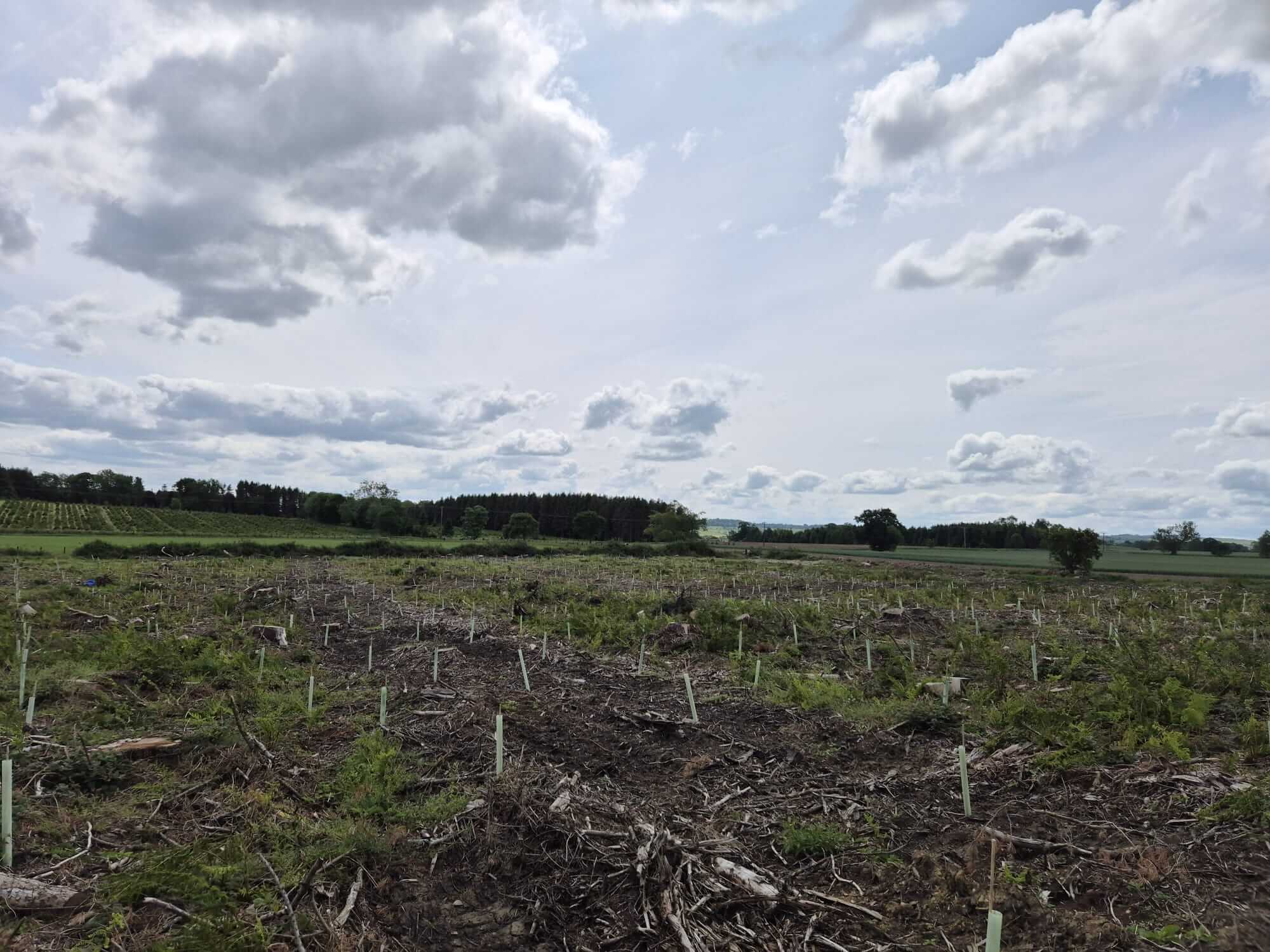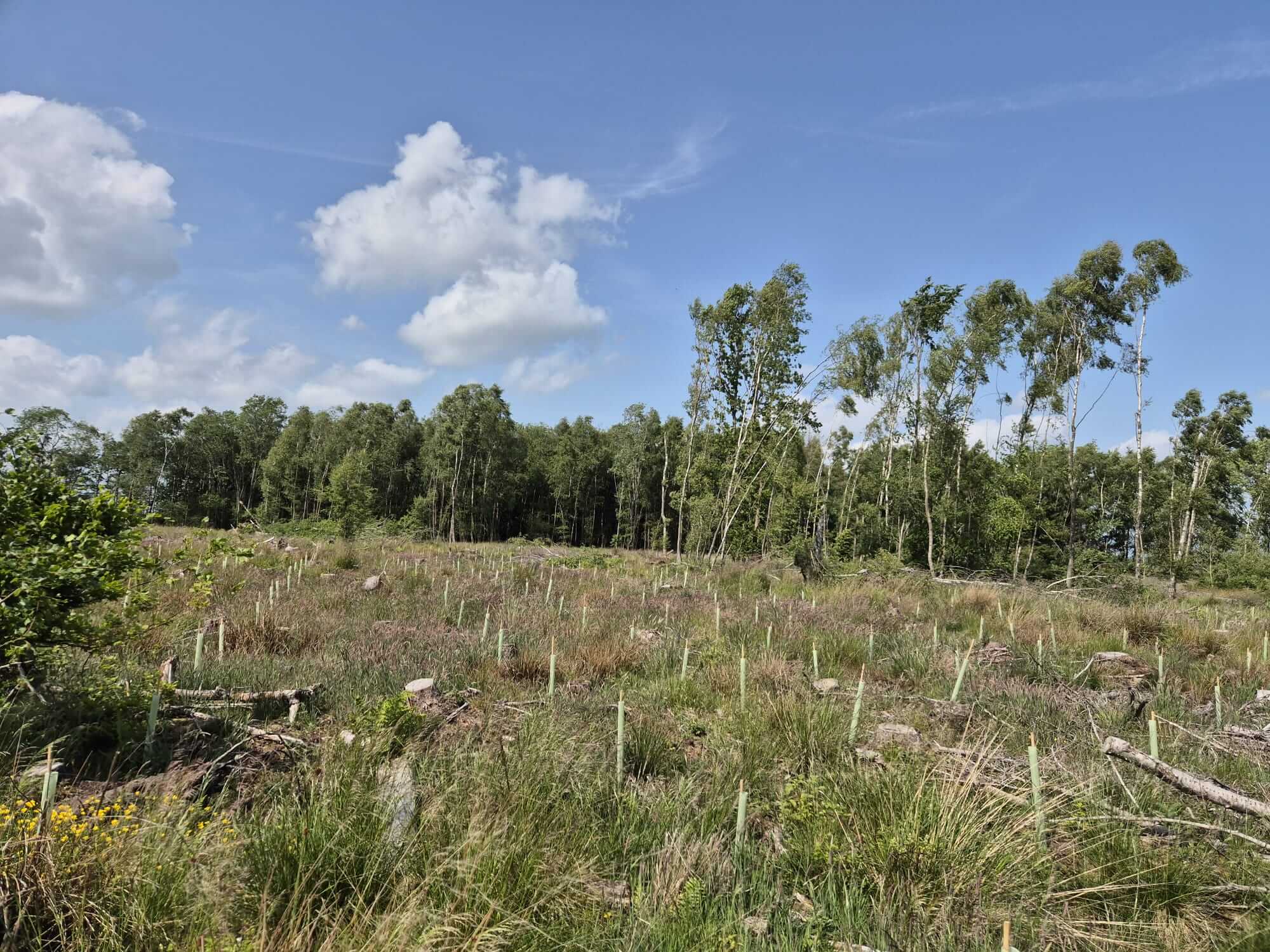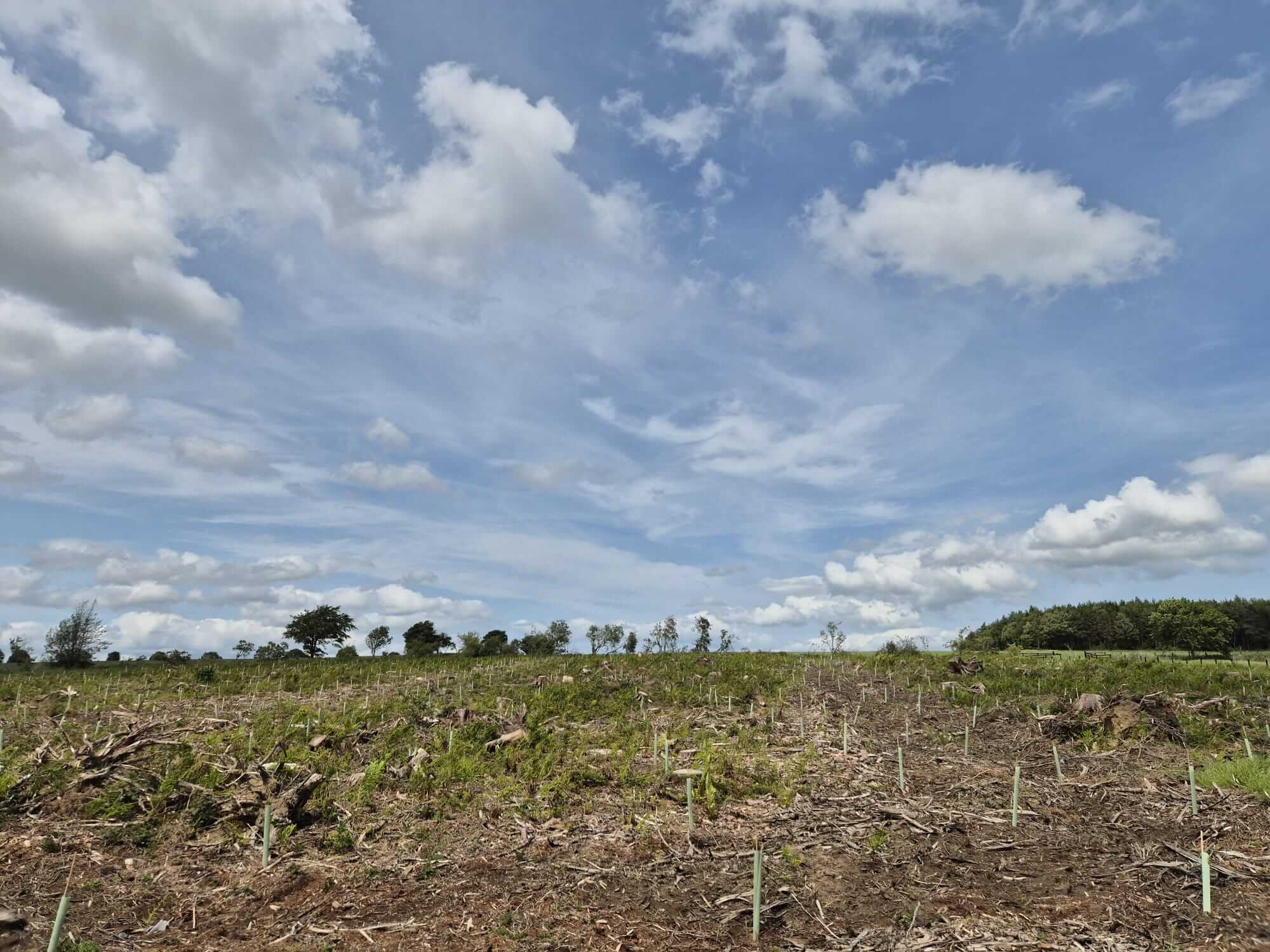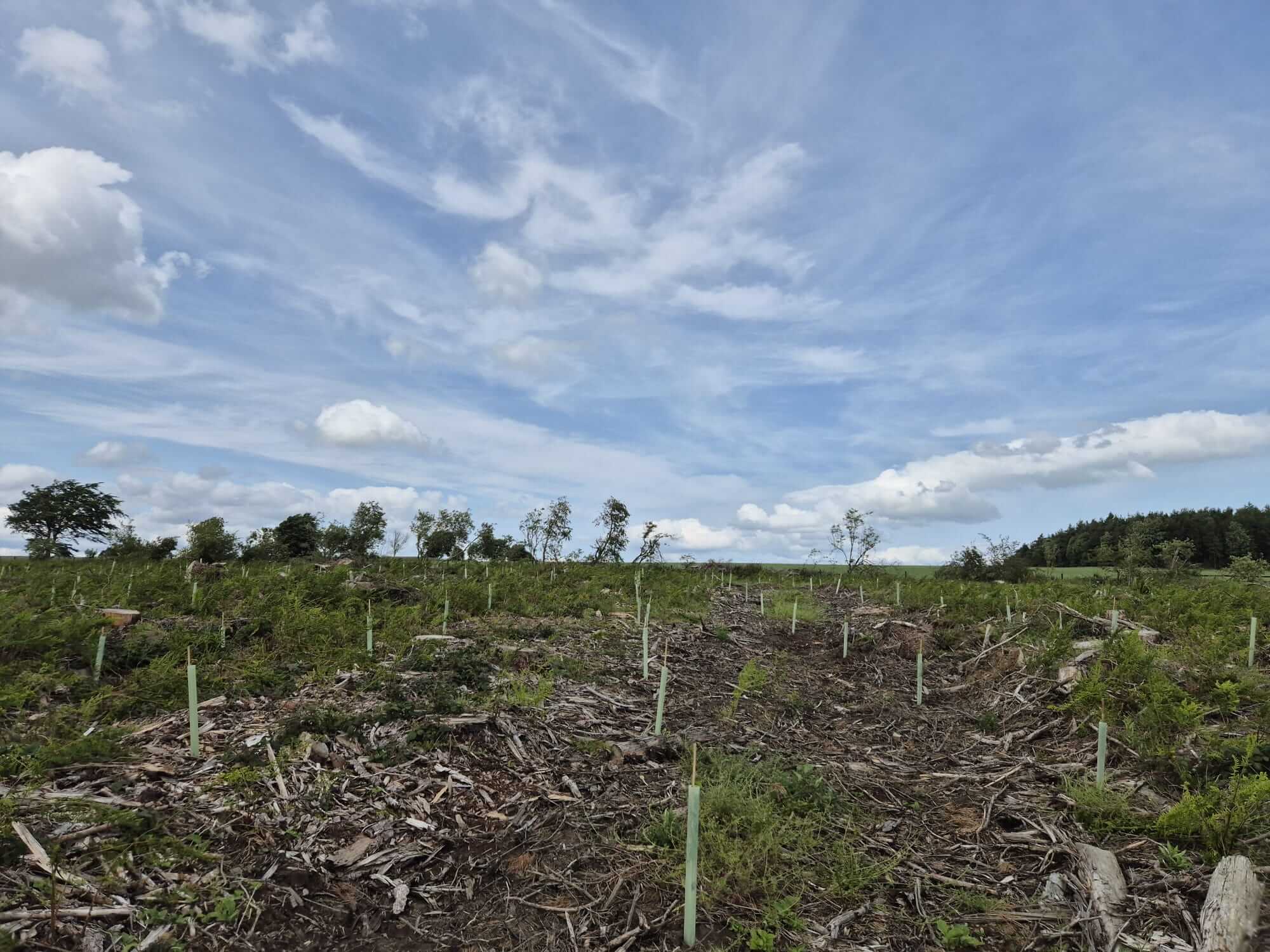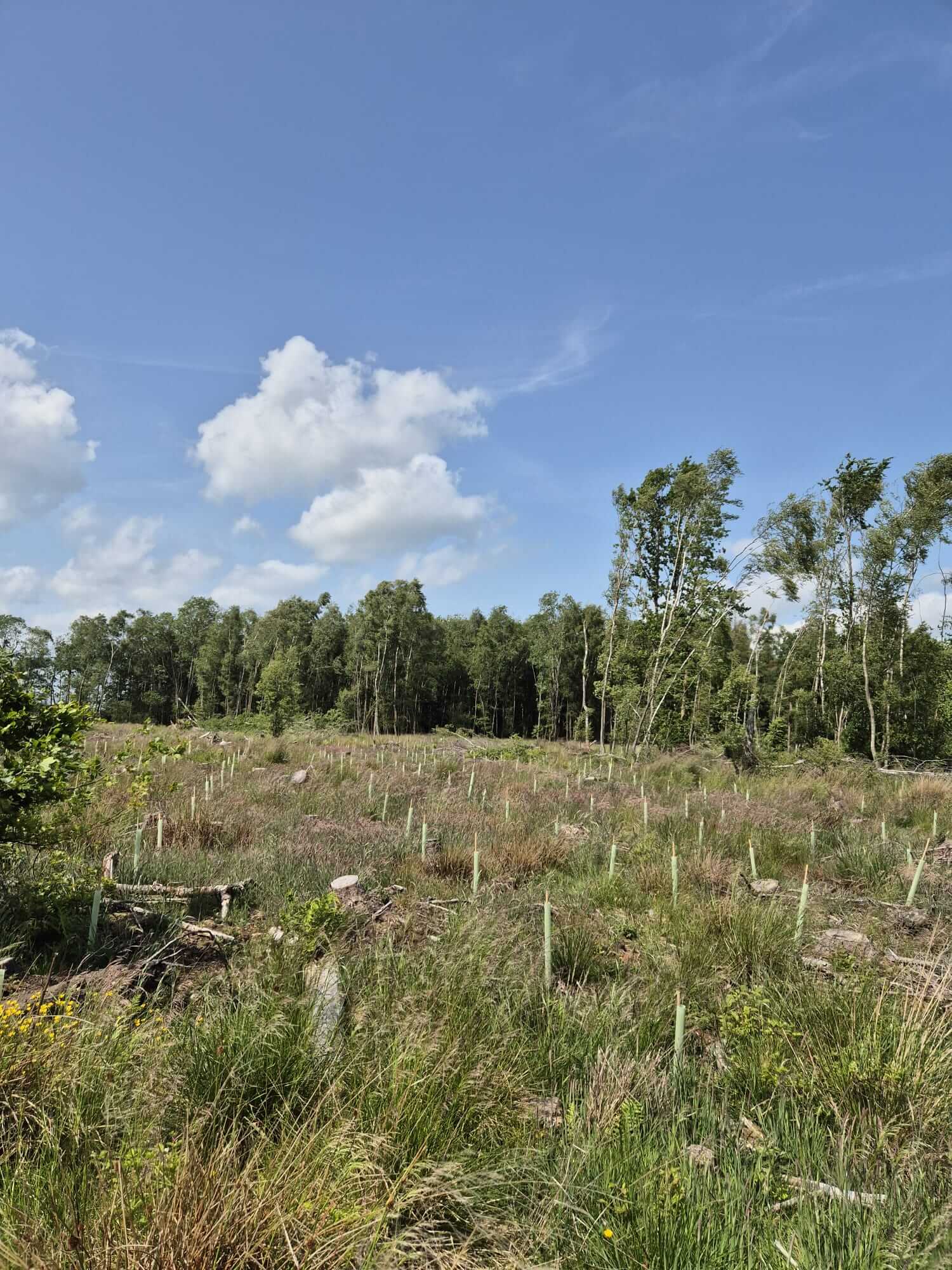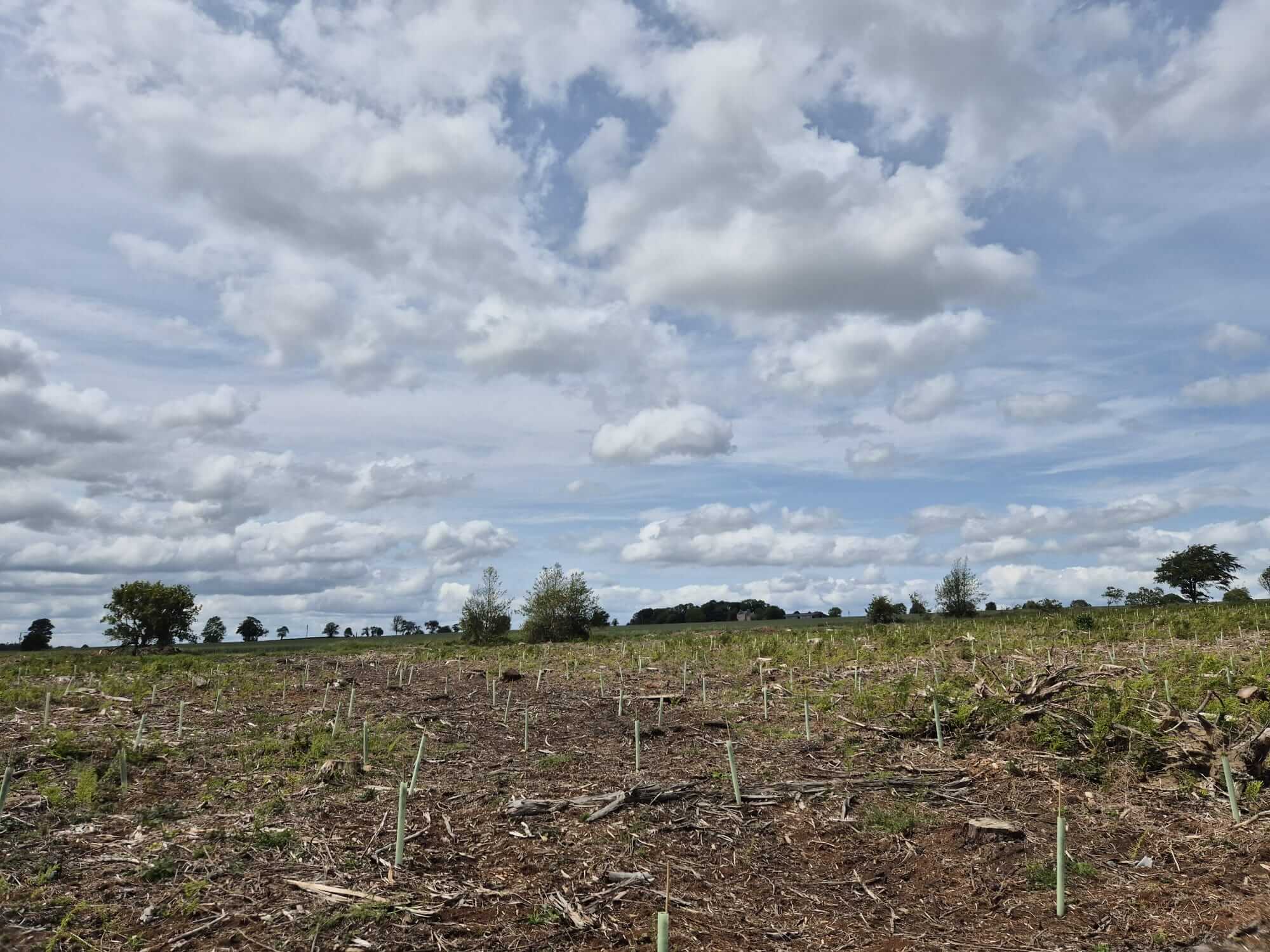Speedy Hire supported the planting of 4,000 climate resilient trees across the UK in 2024-25
Speedy Hire is proud to be working in partnership with GreenTheUK and the Royal Forestry Society (RFS) to plant climate-resilient trees across the UK’s woodlands. This collaborative initiative brings together the RFS’ 140+ years of forestry expertise and GreenTheUK’s community-driven approach to ensure every tree planted contributes to a wider, lasting environmental legacy.
The RFS is a leader in sustainable woodland management. With deep-rooted knowledge passed down through generations, they understand that healthy, thriving woodlands depend not only on the trees we plant, but how we care for them. Our woodlands are managed with both climate and biodiversity in mind.
This partnership is helping to strengthen the resilience of UK woodlands against pests, diseases, and the accelerating impacts of climate change. Increasingly frequent extreme weather events including floods, droughts and storms are placing additional stress on trees. Weaker trees are far more vulnerable to disease and pests. By planting a broader mix of tree species, including some non-native and naturalised varieties, we improve the overall health and adaptability of woodland ecosystems, giving them a better chance of survival in the face of climate change.
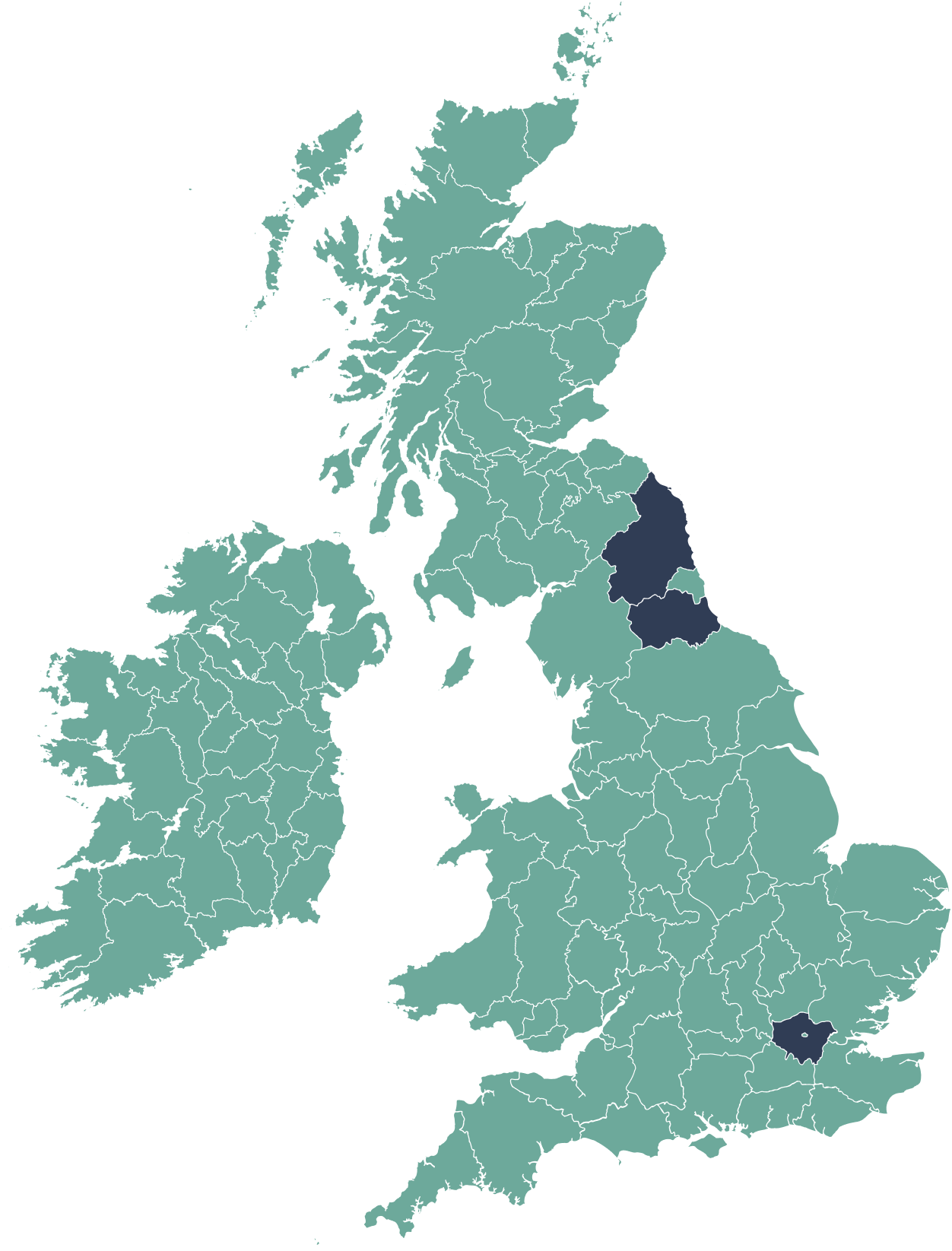
While native species are brilliant for biodiversity, we simply don’t have enough of them to ensure resilient sustainable woods and trees for the future. Many of our native tree species are under threat from new and existing pests and diseases. That’s why diversifying our woodlands is key. If we plant a wide variety of tree species (both native and non-native) we will help to ensure that at least some species will survive future threats. Tree cover habitats will be maintained and our native wildlife will have new and existing trees that they can depend on. Encouragingly, species like red squirrels have already adapted to living in some non-native conifer woodlands because of the ample food supply their cones provide. According to the Forestry Statistics 2024, woodland cover in the UK now stands at 13.5%, with 20,660 hectares of new woodland created in 2023/24, a positive step toward the government’s target of 30,000 hectares annually. With support from businesses like Speedy Hire, we can help ensure that number continues to grow each year.
Expanding woodland cover plays a vital role in tackling climate change. Woodlands store an estimated 4,000 million tonnes of carbon in the UK alone, according to the Save Our Wild Isles campaign. Beyond carbon capture, trees help stabilise soils with their extensive root systems, reduce flood risk by intercepting rainfall with their canopies, and improve water retention in the ground. Some trees can even signal distress through chemical messaging when under attack, giving nearby trees a chance to defend themselves, a remarkable form of natural resilience.
Yet despite all this, the UK remains the second-largest importer of wood products in the world, much of it for use as biofuel. Relying on imports not only undermines our green credentials, but also increases the risk of introducing new pests and diseases to our woodlands.
That’s why responsible, UK-based tree planting guided by expert partners, like the Royal Forestry Society and GreenTheUK, is so important. It’s about planting the right trees, in the right places, and caring for them in the right way so our woodlands can thrive for generations to come.
Tree Species Planted:
2,729 trees planted in Northumberland
Following Storm Arwen, this project has the opportunity to convert some PAWS (Plantations on Ancient Woodland Sites) conifer woodland back into a native broadleaf woodland. Having removed the windblown trees from site, it was ready for planting with an impressive 16 different tree species over two planting seasons. The PAWS site has now been planted with native broadleaves with an amenity and future resilience focus and in a separate block conifers have been planted with future economic resilience in mind.
95 trees planted in County Durham
Planting across 11 different sites, this project aims to increase urban woodland cover in County Durham. New woodland spaces have been created in public parks, recreation grounds, commons, open spaces and schools. This project has engaged local communities in volunteering tree planting activities, including schools, local residents, community groups and businesses. These activities have provided opportunities for these groups to access and engage with their green spaces and gain knowledge and skills on planting and establishing trees.
380 trees planted in London
This hedgerow planting project in London will improve the landscape through increased canopy cover, enhance biodiversity and foster community engagement. The local community played an essential role in shaping this project through consultation and expressed that by enhancing green spaces and opportunities for active participation it would benefit their mental and public health. This is a mix of thorny species, such as hawthorn, holly, blackthorn and dog rose, and non-thorny species such as hazel, sweet chestnut, elder and goat willow. This was a decision based on community feedback and council preferences.
796 trees planted in Northumberland
This woodland experienced significant storm damage during Storm Arwen in 2021. The storm damaged trees were removed and have been replaced with a mix of native and non-native conifers and broadleaves. The new planting will have a significant, positive impact on the visual landscape of the area and provide more habitats for local wildlife. Natural regeneration of trees in this woodland will also be encouraged. These self-seeded trees will help to make the whole woodland more resilient to climate change, pests and diseases.

UN's Sustainable Development Goals
As a GreenTheUK partner, you support projects that are in line with the UN Sustainable Development Goals.

Take urgent action to combat climate change and its impacts.

Sustainably manage forests, combat desertification, halt and reverse land degradation, halt biodiversity loss.























































































.jpg)
.jpg)
.jpg)
.jpg)
.jpg)
.jpg)
.jpg)
.jpg)
.jpg)
.jpeg)
.jpeg)
.jpeg)
.jpeg)
.jpeg)
.jpg)
.jpg)
.jpg)
